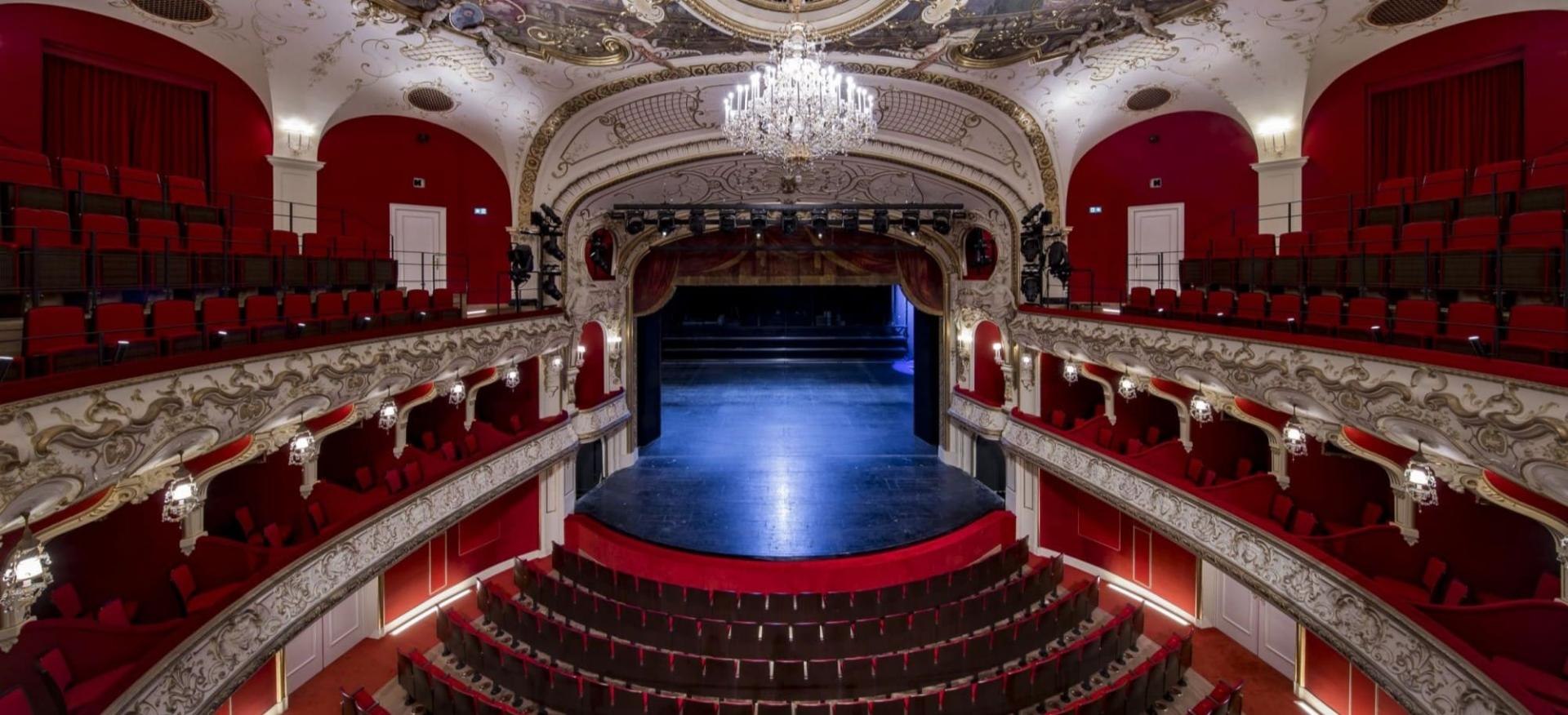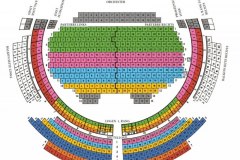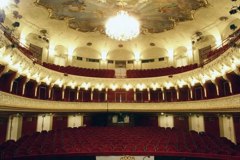Le Passé
Mo | Tu | We | Th | Fr | Sa | Su |
DRAMA
Le Passé - Leonid Andrejew (1871 - 1919)
Adaption by Julien Gosselin;
Translation by André Markowicz
A production by Si vous pouviez lécher mon coeur
Tour production: Odéon-Théâtre de l'Europe
Guest Performance
In French with German and English surtitles
Performance not recommended for children under 15
‘And destroying the walls, space and time with the impetuosity of his all-penetrating look…’
Plays never originate in an idea. Instead, they result from a perfect blend of life, theatre, things we want to achieve and others we don’t. As we were rehearsing a previous show, Players, Mao II, the Names after Don DeLillo, I imagined staging a classic like The Seagull, and wrecking the performance and destroying the characters right after Treplev’s show. Either by armed terrorists or by the progressive disappearance of people in costume from the stage. At first, I thought this was once again the consequence of my anger against the world of theatre, tradition and the audience’s assumed expectations of something they already know, that is, the repertory.
A few months later, I called translator André Markowicz on the phone. I explained that for the first time I was looking for an old text, and told him the story of an early 20th-century society dying out. I told him I was thinking about Gorky’s Children of the Sun. But Gorky is not really my cup of tea, it is too tough and physical for me. I didn’t wish to tell anger, I wanted to tell the story of a goodbye instead. These people should not be killed by the guns of revolution. They would slowly die out in the play’s chain of events.
I thought of Houellebecq writing at the end of The Map and the Territory: ‘The triumph of vegetation is total.’ I also thought of directors who stage classical texts. I thought of what people are accustomed to saying: ‘Playwrights are talking to us.’ ‘Shakespeare is more modern than any other dramatists.’ Then I looked back on my work up to today. Those contemporary texts I worked on, as if they were lost, forgotten worlds, as if contemplated from the future, at a time when our societies are dead and the world is too. Today I think that the reason why we adapt classical texts is their distance from us, not their permanent quality.
We want to see again people who no longer exist, people who have departed. We want to hear languages that were changed through time, we want to understand who we were and to see the dead live again. This is precisely what I tried to explain to André Markowicz. I told him I wished to produce a show that would simultaneously speak about the coming extinction of humanity and the disappearance of classical theatre. An acerbic and sincere goodbye to humanity and conventionalism.
He asked me: ‘Do you know Leonid Andreyev?’ I didn’t at all. Reading his work was a total shock. It was the first time I had felt so humanely close to a long-departed author. Andreyev is very different from his literary contemporaries. He wrote plays, short stories, symbolic works. When reading Andreyev’s work, you can find words that transfix you in all of his scenes, dialogues, sentences. As if we were able with a few words to touch the crucial heart of pain and beauty of the world.
Julien Gosselin
With his habitual combination of theatre, texts, images and musical creation, Julien Gosselin also summons up painted canvases, candlelit footlights, stage flats and ancient costumes in this unique look at the past. They cohabit with the camera and with glass spaces, like images from the contemporary world. As in Tarkovsky’s Solaris, the spectre of which hangs over the stage, and in which the plans of the space rocket alternate with the image of a crowd of peasants in a painting by Brueghel, the piece brings into existence a loop via the energy of Leonid Andreyev’s convulsive and near-fantastical writing. This loop tells us that the future is the past. Between a prolix decorum of bourgeois salon, winter gardens, painted landscapes and acting, Julien Gosselin and his actors and musicians bring us a homage to vanished art and humanity.
Program and cast
Julien Gosselin - Director
Lisetta Buccellato - Sets
Caroline Tavernier, Valérie Simmoneau - Costumes
Guillaume Bachelé - Music
Maxence Vandevelde - Music
Nicolas Joubert - Lighting Design
Jérémie Bernaert, Pierre Martin, Baudouin Rencurel - Video Design
Julien Feryn - Sound Design
Eddy D’Aranjo - Dramaturgy
Antoine Hespel - Assistant Director
Cast
Guillaume Bachelé
Joseph Drouet
Denis Eyriey
Carine Goron
Victoria Quesnel
Achille Reggiani
Maxence Vandevelde
Salzburg State Theatre
The Salzburg State Theatre can look back on a very varied history which directly reflects the political and socio-cultural changes in the life of Salzburg: at the end of the 18th century the former Lodron Ball Room became the “Court Theatre”; in 1880 it was known as the Imperial and Royal National Theatre. After a new theatre was built in 1893 it was known as the City Theatre and following further conversions and renovation work (financed by the regional authorities) it has been known as the Landestheater since 1939/40. In 1856 a secular Mozart Festival was held in Salzburg when Don Giovanni was performed. Towards the end of the 19th century, music festivals were held when several Mozart operas were performed in the Landestheater. These festivities can be regarded as the immediate precursors of the Salzburg Festival.
It is probably more than mere chance that Max Reinhardt entered his first engagement at the age of twenty in Salzburg. He appeared in the opening performance celebrating the new theatre building in 1893 (according to plans by the architects Fellner & Helmer, who as early as 1890 presented an outline plan for a Mozart Festival Hall on the Mönchsberg, which, however, was never realised). From 1922 until the relevant adaptation of the Festival House (1927) all opera performances at the festival were given in the Stadttheater. These were mainly guest productions from the Vienna State Opera which were intended to ensure a scenic alternative programme to Max Reinhardt’s drama productions. Since the time when the festival halls were completed in the old town centre of Salzburg the Landestheater has be-come an important venue for productions of plays, including many world premieres.

 EN
EN DE
DE IT
IT FR
FR ES
ES RU
RU JP
JP RO
RO
 Seating plan
Seating plan 